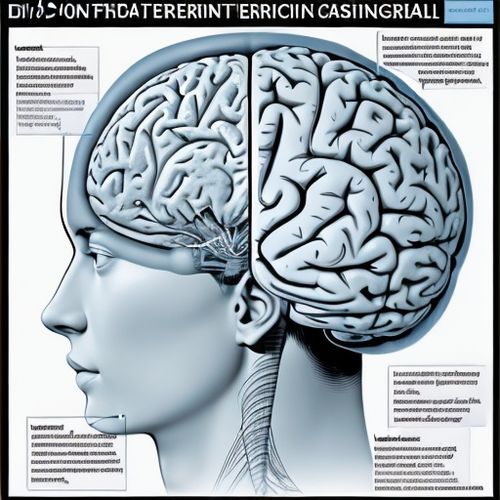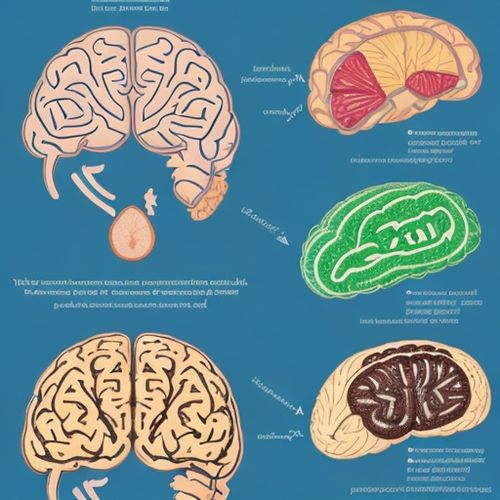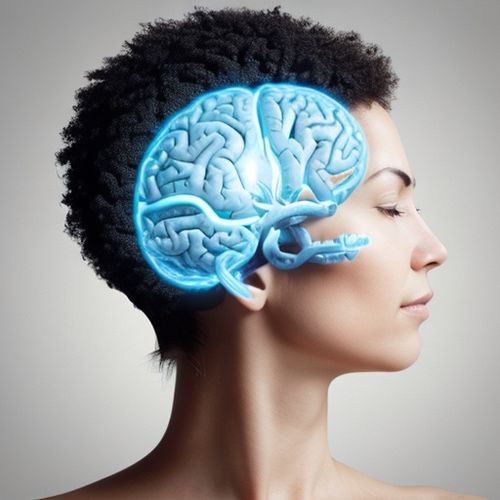Our brain is often likened to the most sophisticated computer in existence, yet it is far more complex and remarkable. It controls our thoughts, emotions, movements, and even the involuntary functions that keep us alive. Given its vital role, maintaining and improving brain health should be a top priority for everyone. Fortunately, there are numerous simple yet effective behaviors that can enhance cognitive function, memory, and overall brain health. In this article, we will explore some of the best practices to keep your brain in top shape.
The Power of Physical Exercise
Physical exercise is not just beneficial for the body—it also has profound effects on the brain. Regular physical activity increases blood flow to the brain, delivering more oxygen and nutrients to its cells. This enhanced circulation helps to support the growth of new neurons and the formation of new neural connections, a process known as neuroplasticity. In fact, studies have shown that exercise can increase the size of the hippocampus, a region of the brain critical for memory and learning.
Moreover, exercise releases endorphins, the "feel-good" chemicals that can improve mood and reduce stress. Chronic stress is known to have negative effects on brain health, including impairing memory and cognitive function. By reducing stress levels through exercise, you can protect your brain from these harmful effects.
Any form of exercise can be beneficial, but activities that combine physical exertion with coordination and balance, such as dancing or martial arts, are particularly effective. Even a brisk 30-minute walk each day can make a significant difference. The key is to find an activity you enjoy and make it a regular part of your routine.
The Importance of Mental Stimulation
Just as physical exercise strengthens the body, mental exercise sharpens the brain. Engaging in activities that challenge your mind can help to build cognitive reserve, a kind of mental resilience that helps to delay the onset of age-related cognitive decline. Activities such as reading, solving puzzles, learning a new language, or playing a musical instrument are all excellent ways to stimulate the brain.
Moreover, learning new skills or taking on new challenges can promote neuroplasticity. When you learn something new, your brain forms new neural pathways and strengthens existing ones. This process helps to keep your brain flexible and adaptable, making it easier to acquire new information and solve problems.
It is important to vary the types of mental activities you engage in. Different activities stimulate different parts of the brain. For example, solving a crossword puzzle primarily engages the language centers, while playing a strategy game like chess activates the prefrontal cortex, which is responsible for planning and decision-making. By incorporating a variety of mental exercises into your routine, you can provide a well-rounded workout for your brain.
The Role of Nutrition in Brain Health
What you eat has a direct impact on your brain health. A diet rich in nutrients can support cognitive function, improve memory, and reduce the risk of neurodegenerative diseases. Certain foods are particularly beneficial for the brain:
- Omega-3 Fatty Acids: Found in fatty fish like salmon, mackerel, and sardines, omega-3 fatty acids are essential for brain health. They are a key component of brain cell membranes and are involved in the transmission of signals between neurons. Studies have shown that a diet rich in omega-3 fatty acids can improve memory and reduce the risk of cognitive decline.
- Antioxidants: Foods high in antioxidants, such as berries, leafy greens, and nuts, help to protect the brain from oxidative stress. Oxidative stress is a major contributor to brain aging and neurodegenerative diseases. Antioxidants neutralize free radicals, the molecules that cause oxidative damage, helping to keep the brain healthy.
- B Vitamins: B vitamins, particularly B6, B9 (folate), and B12, play a crucial role in brain function. They are involved in the production of neurotransmitters, the chemicals that transmit signals in the brain. A deficiency in these vitamins can lead to cognitive impairment and mood disorders. Foods rich in B vitamins include whole grains, legumes, and animal products like meat, eggs, and dairy.
In addition to eating brain-healthy foods, it is important to avoid those that can harm the brain. Processed foods, sugary drinks, and excessive alcohol consumption can all have negative effects on cognitive function. By focusing on a balanced diet rich in whole foods, you can provide your brain with the nutrients it needs to thrive.
The Benefits of Sleep
Sleep is often overlooked as a crucial component of brain health. During sleep, the brain undergoes a process of detoxification, clearing out waste products that accumulate during the day. This process is essential for maintaining optimal brain function. Lack of sleep can impair memory, attention, and decision-making abilities, while chronic sleep deprivation has been linked to an increased risk of neurodegenerative diseases.
To support brain health, it is important to prioritize sleep. Aim for 7-9 hours of quality sleep each night. Establishing a regular sleep schedule, creating a relaxing bedtime routine, and optimizing your sleep environment can all help to improve sleep quality. Avoiding caffeine and electronic devices before bedtime can also promote better sleep.
The Impact of Social Connections
Humans are social creatures, and our brains are wired to benefit from social interactions. Engaging in regular social activities can have a positive impact on brain health. Social connections provide emotional support, reduce stress, and stimulate the brain through communication and shared experiences.
Research has shown that people with strong social networks tend to have better cognitive function and a lower risk of cognitive decline. Activities such as spending time with friends and family, participating in community events, or joining social clubs can all provide valuable social stimulation. Even online interactions, such as video calls or social media, can offer some of the benefits of social connection, especially for those who may have limited opportunities for in-person interactions.
The Role of Mindfulness and Meditation
Mindfulness and meditation have gained significant attention in recent years for their numerous health benefits, including their positive impact on brain health. These practices involve focusing your attention on the present moment, often through techniques such as deep breathing or guided imagery. They can help to reduce stress, improve focus, and enhance emotional regulation.
Meditation has been shown to increase the thickness of the prefrontal cortex, a region of the brain associated with attention, decision-making, and self-awareness. It can also reduce activity in the amygdala, the part of the brain responsible for the stress response. By practicing mindfulness and meditation regularly, you can train your brain to be more resilient to stress and better equipped to handle challenges.
Even a few minutes of mindfulness practice each day can make a difference. Simple techniques such as focusing on your breath, observing your thoughts without judgment, or engaging in a body scan can help to calm the mind and improve cognitive function. There are also numerous guided meditation apps and resources available for those who are new to these practices.
The Importance of Managing Stress
Chronic stress is one of the most significant threats to brain health. When the body is under stress, it produces hormones such as cortisol, which can have harmful effects on the brain. High levels of cortisol can impair memory, reduce neuroplasticity, and increase the risk of mental health disorders such as anxiety and depression.
Managing stress is therefore crucial for maintaining brain health. In addition to exercise, mindfulness, and social connections, there are several other strategies that can help to reduce stress levels. These include:
- Time Management: Prioritizing tasks and setting realistic goals can help to reduce feelings of overwhelm and improve productivity.
- Relaxation Techniques: Practices such as deep breathing exercises, progressive muscle relaxation, or yoga can help to activate the body's relaxation response.
- Hobbies and Leisure Activities: Engaging in activities that you enjoy, such as reading, gardening, or listening to music, can provide a much-needed break from stress and promote relaxation.
By incorporating stress management techniques into your daily routine, you can protect your brain from the harmful effects of chronic stress and improve your overall well-being.
The Benefits of Staying Hydrated
Water is essential for all bodily functions, including brain function. The brain is approximately 73% water, and even mild dehydration can have negative effects on cognitive performance. Dehydration can lead to symptoms such as fatigue, difficulty concentrating, and impaired memory.
To support brain health, it is important to stay adequately hydrated. Aim to drink at least 8 glasses of water per day, and increase your intake during hot weather or when engaging in physical activity. You can also consume hydrating foods such as fruits and vegetables, which can help to meet your daily hydration needs.
The Role of Cognitive Training Programs
In recent years, cognitive training programs have become increasingly popular. These programs, often available as apps or online courses, are designed to improve specific cognitive skills such as memory, attention, and problem-solving. While the effectiveness of these programs is still a topic of debate among researchers, many studies have shown promising results.
Cognitive training programs typically involve a series of exercises or games that target specific brain functions. For example, some programs focus on improving working memory, which is the ability to hold and manipulate information in the mind over short periods. Others may target attention skills or processing speed. By regularly engaging in these exercises, you can challenge your brain and potentially improve cognitive function.
It is important to note that cognitive training should not replace other brain-healthy behaviors such as exercise, nutrition, and social connections. Instead, it can be a complementary tool to support overall brain health. When choosing a cognitive training program, look for one that is evidence-based and has been shown to be effective in scientific studies.
The Impact of Avoiding Toxins
Exposure to toxins can have a negative impact on brain health. Environmental toxins such as air pollution, heavy metals, and certain chemicals can interfere with brain function and increase the risk of neurodegenerative diseases. To protect your brain, it is important to minimize exposure to these toxins.
Some simple steps you can take include:
- Improving Indoor Air Quality: Use air purifiers, keep windows open for ventilation, and avoid smoking indoors.
- Choosing Non-Toxic Products: Opt for household cleaning products, personal care items, and furniture that are free from harmful chemicals.
- Eating Organic Foods: Reducing exposure to pesticides and other agricultural chemicals can help to protect your brain from potential harm.
By being mindful of your environment and making conscious choices to avoid toxins, you can create a safer and healthier environment for your brain.
The Importance of Lifelong Learning
Lifelong learning is not just a buzzword—it is a crucial component of brain health. Engaging in continuous learning throughout life can help to build cognitive reserve, delay cognitive decline, and promote neuroplasticity. Learning new skills, taking courses, or pursuing hobbies that challenge your mind can all contribute to a healthier brain.
Moreover, lifelong learning can provide a sense of purpose and fulfillment, which can have positive effects on mental health. It can also help to keep the brain engaged and active, reducing the risk of boredom and stagnation. By embracing a growth mindset and being open to new experiences, you can continue to develop and improve your brain function throughout your life.
The Role of Laughter and Humor
Laughter is often referred to as the best medicine, and for good reason. Laughter has numerous positive effects on the brain and body. It can reduce stress, improve mood, and enhance cognitive function. When you laugh, your brain releases endorphins, the same "feel-good" chemicals that are released during exercise. These endorphins can help to reduce pain and create a sense of well-being.
Moreover, laughter can stimulate the release of dopamine, a neurotransmitter that is associated with reward and motivation. This can help to improve focus and motivation, making it easier to engage in other brain-healthy behaviors. Watching a funny movie, spending time with humorous friends, or engaging in activities that make you laugh can all provide valuable mental health benefits.
The Importance of Managing Chronic Conditions
Chronic health conditions such as diabetes, hypertension, and high cholesterol can have negative effects on brain health. These conditions can increase the risk of cognitive decline and neurodegenerative diseases. Therefore, it is important to manage these conditions effectively through lifestyle changes and medical treatment.
For example, maintaining healthy blood sugar levels through a balanced diet and regular exercise can help to reduce the risk of diabetes-related cognitive impairment. Similarly, controlling blood pressure and cholesterol levels can improve blood flow to the brain, supporting optimal cognitive function.
By taking steps to manage chronic conditions, you can protect your brain from potential harm and promote overall health and well-being.
The Benefits of a Positive Mindset
Your thoughts and attitudes can have a significant impact on your brain health. Cultivating a positive mindset can help to reduce stress, improve mood, and enhance cognitive function. Practices such as gratitude, optimism, and self-compassion can all contribute to a healthier brain.
For example, focusing on the positive aspects of life and expressing gratitude can help to shift your mindset away from stress and negativity. This can lead to improved emotional well-being and better brain health. Similarly, practicing self-compassion can help to reduce self-criticism and promote a more positive self-image, which can have beneficial effects on mental health.
By incorporating positive thinking practices into your daily routine, you can create a more supportive environment for your brain and overall well-being.
The Role of Regular Check-Ups
Regular medical check-ups are essential for maintaining overall health, including brain health. These appointments provide an opportunity to monitor your health, detect potential issues early, and receive appropriate treatment. During check-ups, healthcare providers can assess your cognitive function, screen for conditions that may affect brain health, and provide guidance on lifestyle changes that can support brain function.
In addition to regular medical check-ups, it is important to stay informed about your health and take an active role in your healthcare. This includes discussing any concerns you may have about your brain health with your healthcare provider and following their recommendations for maintaining optimal health.
Improving brain health is a multifaceted process that involves a combination of physical, mental, and lifestyle changes. By incorporating behaviors such as regular exercise, mental stimulation, a healthy diet, adequate sleep, social connections, stress management, and lifelong learning into your daily routine, you can support optimal brain function and reduce the risk of cognitive decline. Additionally, managing chronic conditions, avoiding toxins, and maintaining a positive mindset can further enhance brain health.
While it may seem overwhelming to implement all of these behaviors at once, even small changes can make a significant difference. Start with one or two actions that feel manageable and gradually build from there. Remember that brain health is a lifelong journey, and every step you take towards a healthier brain can have a positive impact on your overall well-being.
By prioritizing brain health and adopting these beneficial behaviors, you can enjoy a sharper mind, improved cognitive function, and a better quality of life. Invest in your brain today, and reap the rewards for years to come.

By Lily Simpson/Apr 23, 2025

By Lily Simpson/Apr 23, 2025

By George Bailey/Apr 23, 2025

By Ryan Martin/Apr 23, 2025

By David Anderson/Apr 23, 2025

By Victoria Gonzalez/Apr 23, 2025

By Benjamin Evans/Apr 23, 2025

By Christopher Harris/Apr 23, 2025

By Olivia Reed/Apr 23, 2025

By Emma Thompson/Apr 23, 2025

By John Smith/Apr 23, 2025

By Emily Johnson/Apr 22, 2025

By Samuel Cooper/Apr 22, 2025

By Olivia Reed/Apr 22, 2025

By Sophia Lewis/Apr 22, 2025